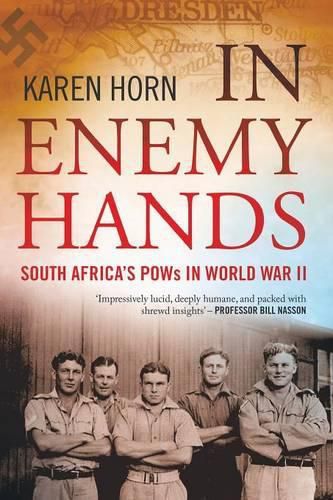Readings Newsletter
Become a Readings Member to make your shopping experience even easier.
Sign in or sign up for free!
You’re not far away from qualifying for FREE standard shipping within Australia
You’ve qualified for FREE standard shipping within Australia
The cart is loading…






This title is printed to order. This book may have been self-published. If so, we cannot guarantee the quality of the content. In the main most books will have gone through the editing process however some may not. We therefore suggest that you be aware of this before ordering this book. If in doubt check either the author or publisher’s details as we are unable to accept any returns unless they are faulty. Please contact us if you have any questions.
Books on World War II abound, yet there are remarkably few publications on South Africas role in this war, which had such an influence on how we live today. There is even less written about those who participated on the margins of the war, especially those who were physically removed from the battlefields through capture by enemy forces. South Africas prisoners of war during World War II, their experiences and recollections, are largely forgotten. That is until now. Historian Karen Horn painstakingly tracked down a number of former POWs. Together with written memoirs and archival documents, their interviews reveal rich narratives of hardship, endurance, humour, longing and self-discovery. Instead of fighting, these men adapted to another war, one which was fought on the inside of many prison camps. It was a war against hunger and deprivation, at times against ever-encroaching despondency and low morale amongst their companions in captivity. In their interviews, all the POWs expressed surprise at being asked to share their experiences. The author found it astonishing that almost all of them claimed not to be heroes of any kind. This is not surprising when one considers that they returned to a country which soon tried its utmost to promote national amnesia with regard to the countrys participation in the war. With great insight and empathy, Karen Horn shines a light on a neglected corner of South African history.
$9.00 standard shipping within Australia
FREE standard shipping within Australia for orders over $100.00
Express & International shipping calculated at checkout
This title is printed to order. This book may have been self-published. If so, we cannot guarantee the quality of the content. In the main most books will have gone through the editing process however some may not. We therefore suggest that you be aware of this before ordering this book. If in doubt check either the author or publisher’s details as we are unable to accept any returns unless they are faulty. Please contact us if you have any questions.
Books on World War II abound, yet there are remarkably few publications on South Africas role in this war, which had such an influence on how we live today. There is even less written about those who participated on the margins of the war, especially those who were physically removed from the battlefields through capture by enemy forces. South Africas prisoners of war during World War II, their experiences and recollections, are largely forgotten. That is until now. Historian Karen Horn painstakingly tracked down a number of former POWs. Together with written memoirs and archival documents, their interviews reveal rich narratives of hardship, endurance, humour, longing and self-discovery. Instead of fighting, these men adapted to another war, one which was fought on the inside of many prison camps. It was a war against hunger and deprivation, at times against ever-encroaching despondency and low morale amongst their companions in captivity. In their interviews, all the POWs expressed surprise at being asked to share their experiences. The author found it astonishing that almost all of them claimed not to be heroes of any kind. This is not surprising when one considers that they returned to a country which soon tried its utmost to promote national amnesia with regard to the countrys participation in the war. With great insight and empathy, Karen Horn shines a light on a neglected corner of South African history.